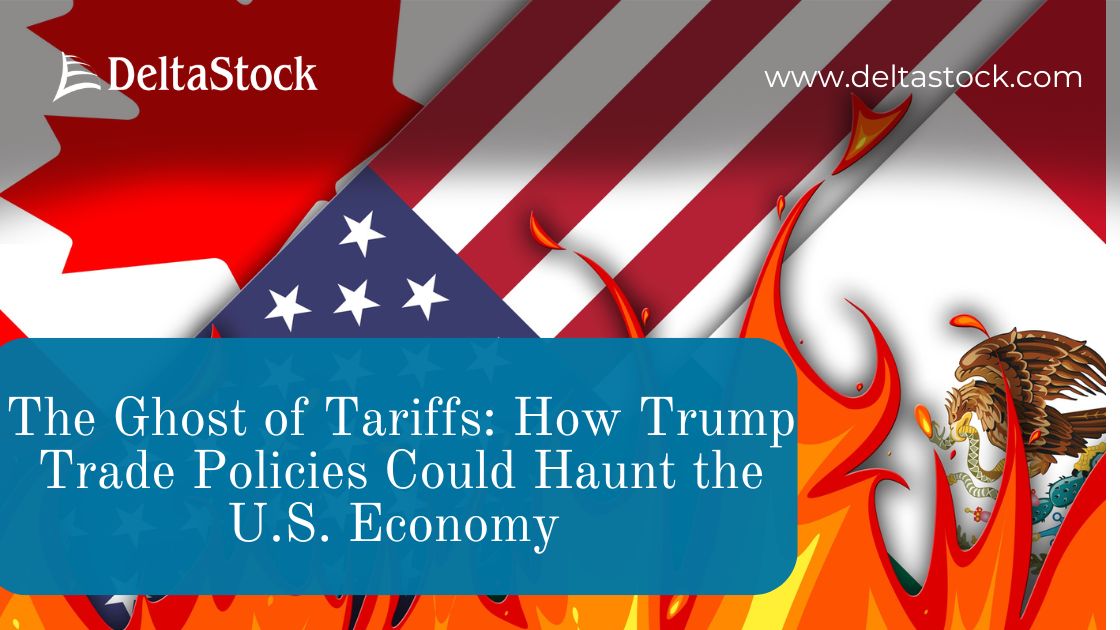
The recent imposition of tariffs by the Trump administration on imports from Canada, Mexico, and China has reignited concerns about the potential economic impacts of such trade policies.
These tariffs, which include a 25% duty on goods from Canada and Mexico and a 20% duty on Chinese imports will raise prices of almost everything. Some analysts estimate that they could cost the US economy $109.23 billion and will pose significant challenges for various sectors of the US economy.
The retaliatory measures already announced by China and Canada will hurt the US economy even more.
Most Affected Sectors
Automotive Sector
Companies like General Motors, Ford, Tesla and Stellantis are heavily impacted due to their reliance on imported parts and assembly operations in Mexico and Canada. Some parts go through several steps of assembly that take place in Mexico or Canada and cross the borders several times before being installed in the vehicle. These tariffs could result in significant financial losses for these companies.
- General Motors – According to JP Morgan analysts, the tariffs could cost the automaker $14 billion, or substantially all of the earnings before interest and taxes (EBIT) it guides to. GM makes 36% of its cars in Mexico or Canada.
- Ford – Faces similar challenges to GM, with substantial operations in Mexico. Ford has three plants in Mexico. It exported just under 196,000 cars to North America in the first half of 2024, with 90% going to the U.S. JP Morgan estimates that the tariffs could cost around 75% of its EBIT for the year.
- Tesla – Tesla could face higher costs for batteries, electronics, and specialty components, many of which come from China. On top of that, it gets between 20 and 25% of its parts from Mexico, depending on the model, plus some parts coming from Canada.
- Stellantis – Also heavily exposed due to its manufacturing presence in Canada and Mexico. According to Barclays, Stellantis makes 39% of its North American vehicles in Mexico or Canada.
Retailers
Major retailers like Walmart, Target, and Costco that import apparel, electronics, groceries and consumer goods from China and Mexico would face higher costs across the board, potentially affecting their profitability and pricing strategies. Many US retailers already operate on thin margins, so they’ll likely pass these costs to consumers, potentially dampening demand.
- Walmart – Walmart’s extensive supply chain depends heavily on low-cost imports, particularly from China. Tariffs would squeeze margins and push up prices for consumers.
- Target – Similarly, Target’s reliance on imported goods, mainly from Mexico, would expose it to significant cost pressures, particularly in fresh produce, home goods and apparel.
- Best Buy – Best Buy said this week it is heavily exposed to the tariffs, noting that China and Mexico are the two largest suppliers of the company’s products, sending its stock down.
Energy Sector
While Canadian oil was given a lower tariff rate, the energy sector still faces challenges due to the reliance on it for refining. Yet the energy sector is less directly exposed to tariffs, though new levies on equipment like pipelines, turbines, and solar panels would increase project costs. However, domestic oil and gas producers like Chevron and Exxon Mobil could benefit if tariffs raise the cost of imported energy.
On the other hand, the renewables sector, especially solar and wind, would face significant headwinds under Trump’s tariff proposals. The US heavily relies on imported solar panels, wind turbines, batteries, and related components, especially from China. Companies like NextEra Energy and First Solar would face higher equipment costs, slowing utility-scale solar project development.
In conclusion, the return of aggressive tariffs under Trump’s trade policies could cast a long shadow over the US economy, disrupting supply chains, driving up costs for businesses and consumers, and slowing economic growth. While domestic producers in select industries may see short-term gains, sectors like automotive, retail, and renewable energy face significant headwinds as they grapple with rising input costs and global trade uncertainty. For investors, the key will be identifying companies with resilient supply chains, pricing power, and limited exposure to cross-border operations, as the US economy navigates the turbulent waters of protectionism.
Seize the moment with Deltastock, where global trade shifts create unique trading opportunities. As tariffs reshape supply chains, disrupt industries, and spark volatility across sectors like automotive, retail, and energy, savvy traders can leverage Deltastock’s advanced platform DeltaTrading or the popular MT5 to capitalise on market swings.
These materials are for information purposes only. They do not post a buy or sell recommendation for any of the financial instruments herein analysed.
Deltastock AD assumes no responsibility for errors, inaccuracies or omissions in these materials, nor shall it be liable for damages arising out of any person’s reliance upon the information on this page.
56% of retail investor accounts lose money when trading CFDs with this provider.